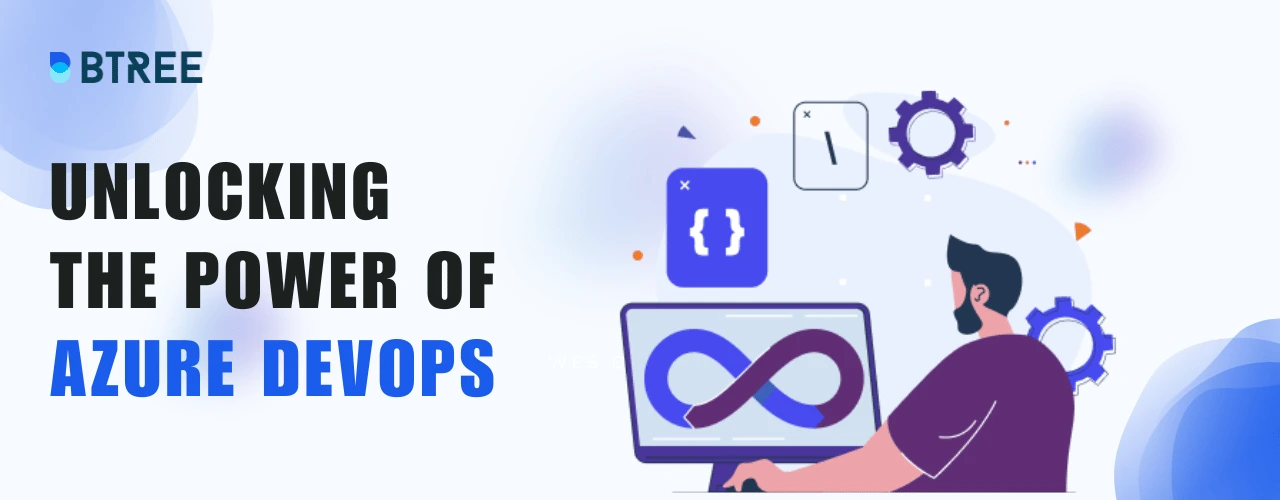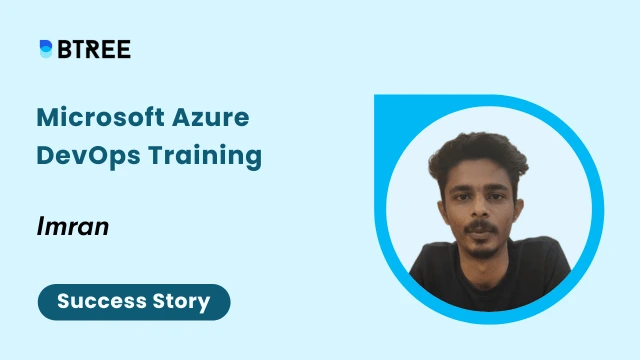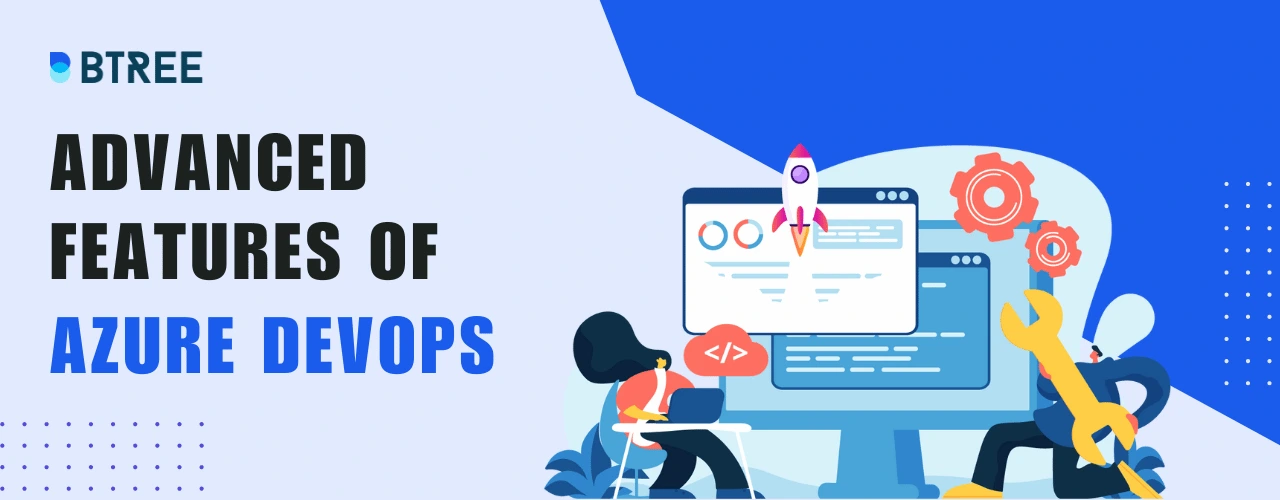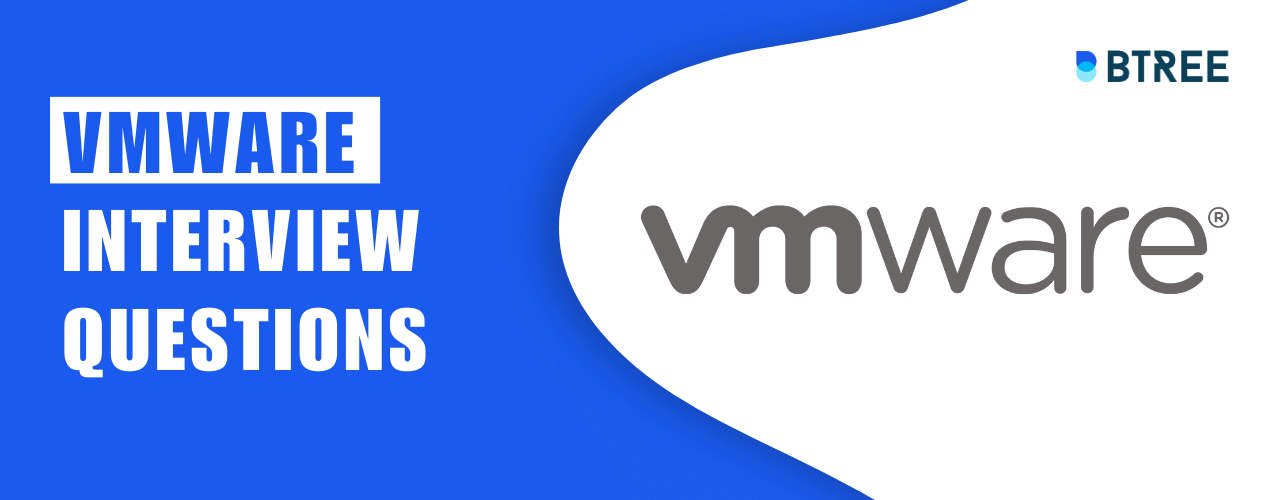
"Currently, DevOps is more like a philosophical movement, not yet a precise collection of practices, descriptive or prescriptive"- Gene Kim.
If you are learning something new, you're crafting the most precious treasure of your life. The hidden gem is more valuable than gold and costs less than paper. Gaining knowledge is unique because it innovates humans constantly and nurtures your brain with zest. While obtaining knowledge is economical, life gives you countless opportunities to learn innovative things daily without spending much. Today is a new opportunity to learn about cloud computing and software development.
This article will walk through Azure DevOps capabilities and unlock limitless opportunities to learn innovative things through Azure case studies and the latest innovations. We are going to start with Azure DevOps introduction and its future. And they were followed by a few case studies, the latest innovations, and a conclusion.
Stay Tuned!!
What Does Azure DevOps Exactly Mean?
Azure DevOps drives efficiency and automation in developing, deploying, and maintaining the development lifecycle. DevOps is a potent tool for transforming businesses through its unique features and powers. With DevOps capabilities, app development companies can streamline development processes, improve the pace of app development, and deliver high-quality applications to their customers seamlessly.
Check out our Azure DevOps Certification to learn more about Azure DevOps. Coming back to the point, the reason behind gaining knowledge on DevOps is its promising future. According to a recent search on LinkedIn's most popular job-providing app, more than 5,000 opportunities are available in India for DevOps engineers.
Want to make a career in DevOps? Get the best training on the current DevOps course.
How does Azure DevOps Work?
DevOps combine the abilities of the software development and operations teams to build agile products using the cloud. The cloud-based product develops and deploys software applications using an integrated set of tools and services that help build and deploy products faster.
DevOps offers a wide range of support services to help developers develop products throughout the lifecycle. It began with Azure Boards, which aids in planning work across the teams. Next, Azure Repos provides storage and manages its source code, branches, and merges. It also reviews changes efficiently through version control services with GIT and TFVC. Azure pipelines automate the build, test, and deployment processes through various programming languages.
Moreover, configuring Continuous Integration and Continuous Deployment (CI/CD) pipelines allows automatic code deployment to multiple environments. Azure Artifacts provides a secure and scalable package management system. It aids developers in creating and hosting different types of packages. The packages include NuGet, Python, Maven, npm, and others. In addition, it contains reusable codes, libraries, dependencies, and other artifacts necessary for software development.
Last but not least, Azure Test Plans support creating and managing test suites, test cases, and test plans, enabling thorough testing and reporting. Want to prepare yourself for AZ-400 exams? here you go with our Certification on Azure DevOps .
Latest Innovation and Updates in Azure DevOps
Azure continuously improves its platform following the principles of DevOps with a large user base. They actively monitor users' pain points and challenges to enhance their workflow. The main reason for updating and driving innovation within DevOps is to address bugs, expand current capabilities, and introduce innovative features.
Moreover, with the advancement of technology, the software development landscape is evolving continuously. Therefore, Azure DevOps must adjust and interact with these improvements through upgrades and new feature releases to stay current and provide developers with new capabilities.
The recent innovations and updates in Azure DevOps are as follows:
a. Integration of GitHub Actions with Azure Pipelines

With the latest update, developers can now use the advantage of creating workflows. Creating workflows automatically build, test, publish, release, and deploy code using GitHub Action with pipelines.
GitHub Actions uses YAML-based configuration files to define workflows, making it easy to version and maintain. Both GitHub Actions and Azure Pipelines have extensive ecosystems with numerous integrations and extensions. You can use a range of pre-built actions, tools, and services to enhance your development and deployment processes.
Developers can now create and deploy their applications with higher speed, scalability, and reliability.
Features like this owe to the potent combination of GitHub Action with Azure pipelines. Collaboration can aid developers in cutting down the time spent on the development and deployment of software. It also cuts down on expenditures associated with software development.
b. Customized Azure Dashboards
A customized dashboard is an exciting innovation in Azure DevOps. Organizations can share information, monitor progress, and identify trends. Developers can gain more visibility into a team's progress by adding widgets. In addition, developers can get a complete overview of software development progress through charts.
Think of it like a dashboard in your car that shows you crucial information at a glance, such as your speed, fuel level, and engine temperature. Similarly, an Azure dashboard allows you to choose and arrange the most relevant data and metrics about your Azure resources in one place.
With such an overview and highly configured, customized dashboard visibility, it aids developers and their teams in improving workflow processes. Moreover, each team can seamlessly tailor their dashboard to share information on the development. It also helps to get complete visibility of the progress.
c. Delivery Plans in Azure DevOps Server
DevOps drives innovation by integrating delivery plans in the DevOps server. Delivery plans will enable developers to view your plan's work items on a timeline using start, target, or iteration dates. Delivery plans will now aid developers with a timeline view of the plan and be able to provide progress of the work.
Delivery Plans provide a clear picture of work items across multiple teams and projects, allowing for better visibility into project progress, dependencies, and timelines. This feature integrates with Azure Boards to create a graphical picture of work items and their timelines.
The user can now view work item cards in two main views: condensed and expanded. The condensed offers an overview of the plan's work and hides some card information. The expanded view showed the work progress item by the number of children and linked objects.
Azure DevOps offers a unified platform for contemporary software development and delivery with all these features and integrations. In addition, with advanced capabilities like configurable dashboards, release management, and cross-platform builds, DevOps gives more power to the development teams.
With automated tests and feedback loops, developers can further enhance the quality of their code with the interaction with Test Plans. In addition, it guarantees developers can concentrate on their code while DevOps handles the rest, leading to reliable and effective software delivery. With constant innovation and advancement in DevOps, Microsoft unlocks opportunities for different industries to thrive and drive innovation. With its advanced capabilities, DevOps has evolved hundreds of companies in various fields. Let's inspire ourselves and learn more about Azure by exploring a few of its case studies.
Case Studies that Transformed Businesses with the Power of Azure DevOps
a. Case Study on Global Financial company Fiserv (Azure)
Overview
To keep up with new advancements, reputed global financial service provider company Fiserv needs to transform and innovate for their customers with an advanced payment processing infrastructure. Fiserv has begun its Enterprise Payment Platform solution on the cloud for product enhancement. The resulting solution provides:
- A transformed real-time payment process.
- A seamless payment process.
- Faster payment operation
- Reduced costs for financial institutions
Operation
There was when banking institutes kept their banking hours traditionally open for the public from 10 a.m. to 4 p.m. However, gone are those days in the modern world of technology. Today, banking industries work for their clients 24/7/365 using the cloud, AI, and machine learning capabilities.
"In this digital environment, banks meet clients 24/7/365 and use technology," With over $16 billion in annual revenue, Fiserv is one of the world's most prominent financial service organizations in Brookfield, Wisconsin. The organization provides technology solutions to move money. They also provide critical information globally for institutions associated with banking and finance.
Challenges
- Lengthy payment processing system.
- Typical bank working hours services.
- On-premise traditional data severe storage system.
- Complex payment processes consume more time and money.
Fiserv Financial Institute customers have all-day banking services. However, payment processing, clearance, and security checks have lengthy processes that have to go through many checkpoints that initially take days. Before the prevalence of 24/7/365 banking services, financial apps, services, and institutes worked from 9 am to 6 pm
To meet banking compliance and standards, the payment needed four to five payment processing systems, one for each type. As an illustration, different methods may handle additional costs, such as real-time payments, wire transfers, automated clearing house payments, and high-value or wire transfers.
Each platform needs other teams, build cycles, infrastructure, and more. Hence, with such complex payment processing systems, there was significant intricacy in processing the payment and its extra costs. Moreover, the process of payment was time-consuming and lengthy.
Solution & Results
- Unified cloud-based payment system.
- Cloud-based data server storage.
- 24/7/365 payment clearance and streamlined payment process.
- Assurance of zero manual error and seamless payment operations.
b. Case Study on Microsoft Xbox team (Azure DevOps)
Overview
The Xbox reliability engineering and operation (xReo) team has generally been an engineering team focused on deploying codes and putting out fires. The shift, however, started in 2018, when the Microsoft game streaming platform assigned tasks to the xReo crew. The group created an automated CI/CD pipeline for deploying Kubernetes across a large geographic area. The new pipeline, cloud infrastructure, and service code, which typically take six to seven months to deploy manually, can now be delivered with straightforward instructions.
Furthermore, adding a few lines of code makes deploying the new Azure region simple.
- The xREO gaming division team was frustrated by spending valuable time on repetitive tasks of maintaining and deploying codes and keeping the site live.
- Things got changed when the team was assigned the task of Microsoft Xbox.
- Collaboration with Sr. Service Engineer Whitesides and the team transforms the employee experience by integrating Kubernetes and docker containers across Azure Pipelines.
- Collaboration with Sr. Service Engineer Whitesides and the team transforms the employee experience by integrating Kubernetes and docker containers across Azure Pipelines.
Today, the xREO team can deploy code more quickly, burnout is routine, and frequent firefighting keeps the team too far apart. In addition, the team's service availability has increased due to implementing the Site Reliability Engineering methodology, and it has evolved into the Microsoft Xbox development team's most dependable partner.
The team is now a trusted member of the development team and is frequently and early consulted due to developers being able to deploy their code. It enables the team to focus on more proactive, valuable tasks.
The Challenge
- xREO staff spend valuable time maintaining data centers and storing code.
- The architect was rigid, with a team not empowered to do much.
- Massive developer efforts involve even simple modifications.
- The restoration was risky and constantly kept developers worried about breaking something.
Xbox Reliability engineering and operation team provides all game support at Microsoft- a part of the gaming division. The primary responsibility of the xREO team is to maintain the Xbox gaming service, which boasts millions of subscribers in 40 different nations. The xREO staff spends valuable time maintaining data centers and storing the code for executing Xbox Live services. They also have to keep the system operational while simultaneously deploying new code that the developer has handed off.
"The architecture was monolithic and rigid, with the service code coupled tightly to the underlying infrastructure, which left us accountable to strict requirements and many big dependency chains. The team's most annoying task was the frequent churn on hyper-repetitive duty. There were numerous burnouts where the employees had to complete repetitive responsibilities constantly. Even small changes posed a significant risk, meaning we spent much time firefighting. Our mode of operation was mostly reactive, and we weren't empowered to do much about it. James Whitesides (Senior Service Engineer)."
The team also becomes dissatisfied because relatively simple modifications necessitate numerous developer efforts and demand a long series of hoops. Because they were obliged to write constrained code due to the constant fear of damaging things, developers threw their code over the proverbial fence for the xREO team to deploy.
The Journey
- The company adopted five service engineers with whitesides.
- Whitesides made a significant architecture choice with a straightforward decision of choosing Docker containers.
- The next big step is choosing orchestration with Kubernetes.
- Architecture made with Azure Kubernetes solution becomes alluring.
However, beginning in 2018, things began to change when the team xREO got contacted to help develop Project xCloud. The on-demand cloud game streaming service will let users worldwide play the games they want from any screen at any time. Whitesides was one of five service engineers formally assigned to the project a few months later, in May 2018.
Whitesides and the xREO team started working and made a significant architectural choice regarding the containerization of the service code. Using containers would be easier to collaborate with because developers would own all the code inside the containers, and the xREO team would own all the infrastructure outside the containers. Additionally, containers also eliminate dependencies.
The orchestration of the container was the following process after choosing a Docker container. Again, the decision was straightforward: Kubernetes, the de facto industry standard, was the obvious pick. However, when the xREO team gained access to the Azure Kubernetes solution, a fully managed Kubernetes solution that would do away with the requirement for manual management of VMs and Kubernetes clusters, Kubernetes became even more alluring. Soon after, Kubernetes clusters and Docker containers were adopted.
The Result
- The pipeline can deploy more microservices.
- Developers are more independent.
- The availability of services enhanced
- The burnout task for the xREO team is distinct.
After ten months, the xREO team completed the automated deployment pipeline thanks to their combined efforts. Currently, the pipeline deploys more than 35 microservices based on the Azure Kubernetes Service across multiple Azure regions, each depending on more than 100 resources (per region). Plans include expanding to additional Azure regions in a few months and eventually to every area.
Thanks to an automated deployment process, the developers are now independent and free to concentrate on different architectural and infrastructure advancements. Additionally, services are widely accessible and of the highest quality. Additionally, the xREO team's burnout from repetitive tasks is a distant memory.
Conclusion
DevOps is one of the most efficient and adaptable development platforms. It is empowering organizations by streamlining development processes. As we sneak at the future of Azure DevOps, the upcoming trends indicate the importance of Azure DevOps in the development landscape.
Further, the new trends in DevOps will enrich its power and abilities. With AI technology integration and machine learning abilities, DevOps will become strong.
With such trends and multiple benefits, it has become a highly boosted development platform for current and future circumstances. DevOps provides one-stop solutions that drive growth within the business and evolve the needs of industries.
Want to become a certified Azure solution Architect? Check out our syllabus for Azure solution Architect training.
Azure DevOps continues to bring exciting innovations to the corporate world. Azure DevOps empowers developers to work more efficiently with improved collaboration features, streamlined deployment, and enhanced security measures. In addition, it will help developers to release updates faster and keep their projects safe.
Azure DevOps provides a user-friendly platform that simplifies the software development process and enables you to achieve your goals. Stay tuned for more innovations as Azure DevOps continues to transform and sustain the needs of developers worldwide.
FAQs:
1. What level of support does Microsoft provide for DevOps?
Microsoft provides essential and robust support to DevOps to develop and deploy software development on the cloud. It supports strategic guidance, architectural reviews, proactive monitoring, security, and personalized support from dedicated and skilled support teams.
2. What is the role of Azure pipelines in DevOps?
Azure Pipelines play a crucial role in the DevOps development lifecycle. It enables continuous delivery and integration (CI/CD) designs that automate the development and deployment processes of the product.
3. Can DevOps be used with different programming languages and platforms?
Definitely, yes. DevOps offers flexibility and supports various programming languages and preferred platforms that help users to use other languages.
4. Can you give examples of companies or organizations that have successfully implemented DevOps and achieved notable outcomes?
Many companies have adopted the powers of DevOps and achieved remarkable results. A few examples are Alaska Airlines, Boeing, the University of Washington, General Electric, Swiss Re, Siemens Healthineers, etc. You can find at least ten companies from each industry that have adopted Azure DevOps capabilities for their business transformation. Many companies have adopted DevOps for the revolution of their business.
5. How does Azure DevOps guarantee security and compliance?
Azure is spending billions of dollars to safeguard the data of its clients. DevOps follows several compliance standards, including ISO 27001, SOC 1 and SOC 2, GDPR, HIPAA, and others. Azure DevOps also integrates safe development techniques like threat modeling, code analysis, and vulnerability detection.
Our Lovely Student feedback
Course Schedule
| Name | Date | Details |
|---|---|---|
| Azure DevOps Training |
19 Aug 2023
(Sat-Sun) Weekend Batch |
View Details |
| AWS DevOps Training |
26 Aug 2023
(Sat-Sun) Weekend Batch |
View Details |
| Microsoft Azure Training |
02 Sept 2023
(Sat-Sun) Weekend Batch |
View Details |
Looking For 100% Salary Hike?
Speak to our course Advisor Now !









